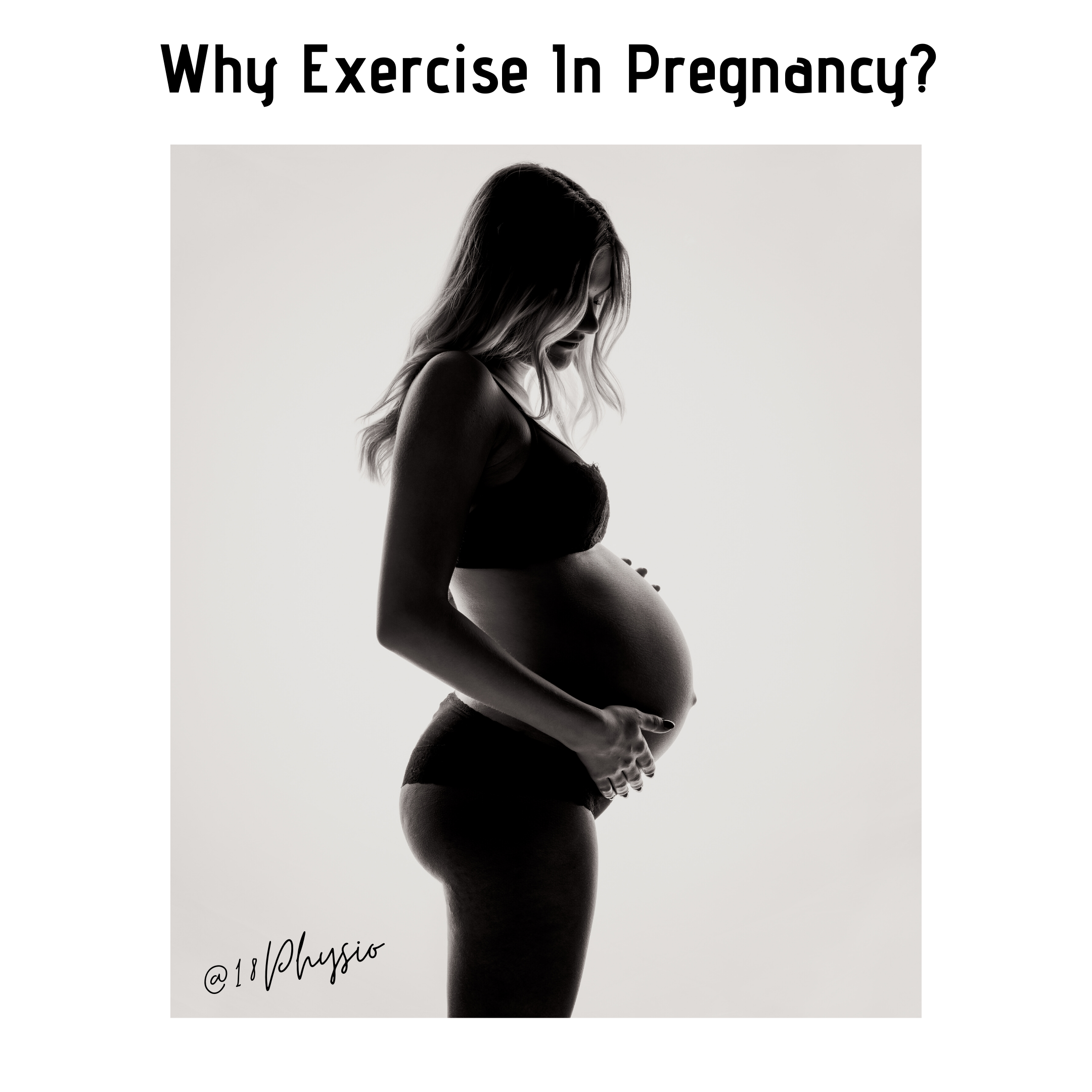Why Exercise in Pregnancy?
Exercising in pregnancy is not only safe, given there are no contraindications, but also has several benefits for both mum and bub. These include:
- Decreased risk of a large baby for its gestational age.
- Decreased risk of pre-eclampsia (characterised by high blood pressure, fluid retention and protein in the urine).
- Decreased risk of gestational hypertension and gestational diabetes.
- Decreased risk of excessive gestational weight gain.
- Decreased risk of developing depression or low mood.
- Decreased risk of developing back or pelvic girdle pain.
With so many positives for exercising in pregnancy, it is important to get moving and exercising ?
Below are a few pointers on what may be safe during pregnancy, however these are very generalised recommendations. Please seek advice from your obstetrician, GP, midwife or physiotherapist prior to commencing exercise to ensure you do not have any contraindications that makes exercising unsafe during your pregnancy.
General Recommendations:
- 150 minutes of moderate intensity exercise each week.
- Exercise on at least 3 days per week, however daily activity is encouraged.
- Mix of cardiovascular and resistance training.
- Pelvic floor muscle training to reduce the risk of urinary incontinence in pregnancy.
- Avoid lying on your back after the first trimester.
So, to break that information down, an example of a week may look something like this:
- Pelvic floor muscle training 3 x day.
- A light walk each day for 10-20 minutes.
- Moderate intensity exercise, mixing cardio and resistance training. 3 x week for 50 minutes or 5 x week for 30 minutes.
- This may include:
- Gym / home workouts.
- Pre-natal Pilates.
- Pre-natal Yoga.
- Pre-natal water aerobics.
Does this look like too much exercise? Not enough for what you are used to? Not to worry – these are the general guidelines.
Your exercise regimen during pregnancy should be individualised and take into consideration your exercise load prior to falling pregnant and your personal goals.
Some people may need to slowly build up to the guideline recommendations, whilst others may need to slowly reduce their load as their pregnancy progresses. This is where everyone is different. Take it at your own pace, listen to your body and speak to your team of health professionals.
Safety first, here is what to avoid:
- Avoid exercising in heated environments. For example:
- Bikram yoga
- Heated pools
- Outside on an excessively hot day.
Note: Your core temperature should not exceed 38 degrees.
- Avoid sport / exercise types with a high risk of falling. For example:
- Skiing.
- Cycling.
- Team sports.
- Avoid sports with direct risk of physical trauma. For example:
- Boxing.
- Avoid high impact exercise after the first trimester.
- E.g. running, jumping.
- Alternative options to high impact can be individualised for you.
How should I push myself during exercise?
You want to be pushing to a “moderate intensity” on the 3 x 50 minute sessions per week. As your vital signs change in pregnancy, including an increased heart rate, the Borg Scale is used as a measure of your exertion. You want to be exercising at “somewhat hard” (12-14 on the scale).
When to stop exercising?
If something just does not feel right, listen to your body and stop.
If you are unsure, please discuss any concerns you may have with your health professional.
Additionally, you must stop your training if you experience any of the following:
- Unexplained bleeding.
- Sudden swelling.
- Severe headaches or visual disturbances.
- Pain or redness in the calf.
- Abdominal pain.
- Chest pain.
- Persistent contractions.
Please be in touch with further questions regarding exercising in pregnancy. Additionally, if you would like a personalised program or to commence clinical exercise with myself, please be in touch.
0458789818
Jess ?
References:
Mottola MF, Davenport MH, Ruchat S, et al 2019. Canadian guideline for physical activity throughout pregnancy. British Journal of Sports Medicine 2018;52:1339-1346.
Exercise and pregnancy in recreational and elite athletes: 2016/2017 evidence summary from the IOC expert group meeting, Lausanne. Part 5. Recommendations for health professionals and active women Bo et al 2016/7

